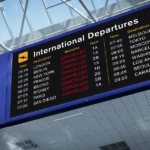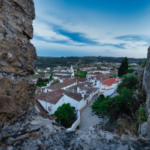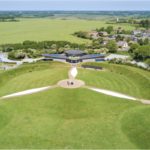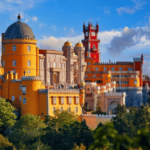Embark on an unforgettable journey through the Rhine Valley, a treasure trove of scenic landscapes and exquisite wine. Nestled in the heart of Europe, this region offers an unparalleled blend of natural beauty, rich history, and culinary delights. Exploring Rhine Valley promises adventures that captivate both the eyes and the palate. Get ready to discover what makes this destination a must-visit for any travel enthusiast.
Introduction to the Rhine Valley: A Gem in European Travel

The Rhine Valley, with its breathtaking vistas, represents the quintessence of European travel. Starting our journey, the valley unfolds like a storybook, each turn revealing more of its splendor. Here, the river carves through heart-stopping landscapes, guarded by ancient castles that whisper tales of yore. This area is not just a sight to behold; it’s a living history lesson, offering insights into Europe’s past.
Transitioning from history to nature, the Rhine Valley’s landscapes are a feast for the senses. Amidst this natural splendor, vineyards stretch as far as the eye can see, painting the hills with hues of green and gold. The region’s beauty is not static; it changes with the seasons, each bringing its own flavor of charm. It’s a reminder of the Earth’s quiet yet profound artistry, inviting travelers to pause and marvel.
Moreover, exploring Rhine Valley is an experience enriched by the wines it produces. This region is renowned for its viticulture, a tradition deeply rooted in the soil of these lands. Wine tasting here is not just about the act of drinking; it’s about understanding the symbiosis between land, climate, and human touch. Each sip tells a story of its origin, making every wine tasting a unique journey into the essence of the valley.
The Best Time to Visit the Rhine Valley
Choosing the best time to visit the Rhine Valley can significantly enhance your travel experience. Spring emerges as a favorite, when blossoms paint the landscape in vibrant colors. This season offers mild weather, perfect for leisurely strolls along the river or through historic towns. It’s a time when nature awakens, providing a fresh backdrop for photographs and memories.
Summer in the Rhine Valley brings its own allure, with longer days allowing for extended explorations. Vineyards are lush, and the region buzzes with activity, from wine festivals to open-air concerts. This period is ideal for travelers eager to immerse in the local culture and enjoy outdoor dining against the backdrop of spectacular sunsets. However, it’s also the peak season, so expect more company in popular spots.
Conversely, autumn casts a magical hue over the Rhine Valley, making it a picturesque time for visiting. The vineyards turn golden, and the harvest season brings a bounty of fresh produce and new wines to taste. Cooler temperatures and fewer tourists create a more serene atmosphere, perfect for those seeking a tranquil escape. Moreover, the changing leaves offer a stunning visual spectacle, enhancing the beauty of this timeless region.
Scenic Routes: Discovering the Rhine Valley’s Landscapes
Embarking on a journey through the Rhine Valley, one is immediately struck by the sheer beauty of its landscapes. The river acts as a guide, leading travelers through a mosaic of scenic vistas. Each bend in the river reveals new wonders, from steep vineyards to quaint villages nestled along the banks. This route offers a visual feast, showcasing nature’s unparalleled ability to craft landscapes that inspire awe and serenity.
As we delve deeper into exploring Rhine Valley, the significance of its scenic routes becomes evident. These paths are not just about the destinations they lead to but about the journey itself. Traveling by boat, one can fully appreciate the grandeur of the valley, with views of historic castles and landmarks appearing around every corner. It’s a unique perspective that highlights the harmony between human history and natural beauty, enriching the travel experience.
Furthermore, for those who prefer the intimacy of a walking tour, the Rhine Valley offers numerous trails that wind through its heart. Hiking these routes opens up opportunities to discover hidden gems, from secluded vineyards to panoramic viewpoints that are off the beaten path. It’s an invitation to slow down and connect with the landscape, allowing the valley’s tranquil beauty to unfold at a personal pace.
A Taste of Tradition: Wine Tasting in the Rhine Valley

Wine tasting in the Rhine Valley is an essential experience for any visitor, offering a deep dive into the region’s rich viticultural heritage. The valley, known for its diverse grape varieties, produces wines that are as complex as the landscape itself. From crisp Rieslings to full-bodied Spätburgunders, each glass tells a story of the soil, climate, and centuries-old traditions that have shaped this wine-making region.
Exploring Rhine Valley through its wines also provides an intimate glimpse into the local way of life. Vineyards and wineries, many family-owned for generations, open their doors to visitors, offering guided tastings and tours. Here, wine is more than a beverage; it’s a bridge connecting people, history, and land. Engaging with winemakers, one learns about the dedication behind each bottle, fostering a deeper appreciation for the craft.
Moreover, wine festivals dot the calendar, inviting guests to celebrate the harvest and taste the valley’s bounty. These events are not just about sampling wine; they’re about community, music, and feasting outdoors amidst the vineyards. It’s an opportunity to mingle with locals and travelers alike, united by a love for wine and the beauty of the Rhine Valley. Such experiences enrich the journey, leaving lasting memories and a longing to return.
Historic Castles Along the Rhine: A Journey Through Time
The Rhine Valley is dotted with historic castles, each telling a unique story of Europe’s medieval past. As one travels through the region, these ancient fortresses stand as sentinels over the landscape, offering a glimpse into a bygone era. The majesty of these structures is undeniable, with their towering walls and intricate designs showcasing the architectural prowess of their time. It’s a visual journey through history, where each castle has its own legacy to share.
Exploring these castles, one cannot help but feel transported back in time. The stones of these fortifications, weathered by centuries, speak of the countless stories that unfolded within their walls. From tales of knights and nobility to sieges and alliances, the history encapsulated here is rich and varied. Walking through the courtyards and halls, visitors can imagine the grandeur that once filled these spaces, making exploring Rhine Valley a truly immersive experience.
Moreover, many of these castles offer guided tours, allowing for an even deeper understanding of their historical significance. Through expert narratives, one learns about the strategic importance of the Rhine Valley in medieval Europe and the role these castles played in it. This enriches the visit, turning it into an educational adventure as well as a visual feast. It’s an opportunity to connect with the past in a tangible way, adding depth to the exploration of this enchanting region.
Cultural Experiences: Festivals and Local Traditions
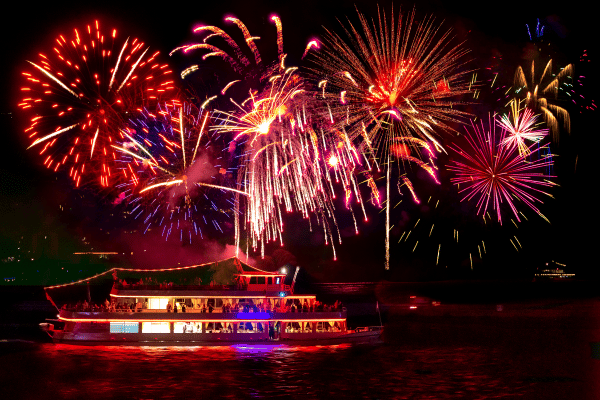
The Rhine Valley is not only celebrated for its landscapes and wines but also for its rich tapestry of cultural experiences. Throughout the year, the valley comes alive with festivals that showcase the region’s traditions and community spirit. These events are a colorful display of local customs, offering visitors a chance to immerse themselves in the authentic culture. From wine festivals to medieval markets, each celebration is a window into the valley’s soul.
One cannot discuss exploring Rhine Valley without mentioning its vibrant festivals. These gatherings are more than just events; they are expressions of joy and heritage passed down through generations. The atmosphere is electric, filled with music, dance, and laughter. Visitors are not just spectators but are welcomed to participate, blurring the lines between locals and tourists. This inclusivity is a testament to the warm hospitality characteristic of the Rhine Valley.
Furthermore, these festivals offer a unique opportunity to sample local cuisine, adding another layer to the cultural exploration. Food stalls serve up regional specialties, allowing tastes and smells to transport you deeper into the Rhine Valley’s traditions. It’s a feast for the senses, where each dish tells a story of the land and its people. Engaging in these traditions, one gains not just memories but an understanding of the community’s heart.
Hiking and Outdoor Adventures in the Rhine Valley
The Rhine Valley offers more than just visual beauty; it invites visitors to engage with its landscapes through hiking and outdoor adventures. Trails wind through vineyards, along riverbanks, and up to historic ruins, providing a range of experiences for all skill levels. These paths are not just routes but journeys, each step unveiling new vistas and hidden treasures of the valley. It’s an active way to explore, blending physical challenge with natural wonder.
Moreover, the diversity of outdoor activities in the Rhine Valley extends beyond hiking. Cycling along the river offers a different pace, allowing for breezy exploration of both well-trodden and lesser-known paths. Water sports on the Rhine, such as kayaking and cruising, present unique perspectives of the valley’s landscapes and castles. These adventures cater to the desires of every traveler, promising exhilaration and relaxation in equal measure.
Engaging in these outdoor activities also fosters a deeper connection with the Rhine Valley. The rhythm of walking or cycling syncs with the natural pace of the landscape, creating a meditative experience. The river, with its constant flow, becomes a companion on the journey, guiding explorers through the heart of the valley. This immersion into the outdoors not only invigorates the body but also enriches the soul, making each adventure a cherished memory.
Culinary Delights: Exploring Local Cuisine
The Rhine Valley is a paradise for food lovers, offering a culinary journey as rich and varied as its landscapes. Local cuisine here is a reflection of the region’s history, geography, and culture, blending traditional recipes with modern creativity. Restaurants and taverns serve dishes that are deeply rooted in the land, featuring fresh, seasonal ingredients. It’s a taste of the Rhine Valley’s heritage, inviting visitors to explore flavors that tell the story of this fertile region.
Dining in the Rhine Valley goes beyond mere eating; it’s an experience that engages all senses. The presentation of dishes, often as picturesque as the valley itself, adds to the enjoyment. Local wines, perfectly paired with meals, enhance the flavors, turning each dining experience into a celebration of the region’s viticultural excellence. This harmony between food and wine is a testament to the Rhine Valley’s dedication to culinary perfection, making exploring Rhine Valley a must for any epicurean.
Moreover, the opportunity to participate in cooking classes or wine and food pairing workshops offers a deeper dive into the valley’s culinary traditions. These experiences allow visitors to not only savor the tastes but also understand the craftsmanship behind them. It’s a way to bring a piece of the Rhine Valley home, transforming memories into skills that can be shared and savored again. Engaging with local cuisine in such an interactive way enriches the travel experience, leaving a lasting impression of the region’s gastronomic landscape.
Tips for Sustainable Travel in the Rhine Valley
Sustainable travel in the Rhine Valley is not just a choice; it’s a commitment to preserving the beauty and integrity of this remarkable region. Visitors are encouraged to adopt eco-friendly practices, such as using public transportation, which is both efficient and offers a scenic way to explore. By doing so, travelers minimize their carbon footprint, ensuring that the valley remains pristine for future generations to cherish and explore.
Moreover, the Rhine Valley’s commitment to sustainability is evident in its accommodation options. Many hotels and guesthouses have adopted green policies, focusing on energy efficiency and waste reduction. Choosing to stay in such places supports businesses that are mindful of their environmental impact. This not only contributes to the conservation efforts but also enriches the travel experience, providing comfort and peace of mind knowing that your stay is aligned with eco-friendly values.
Engaging with the local community is another aspect of sustainable travel. Purchasing local products, dining at restaurants that source ingredients regionally, and participating in tours led by local guides not only boost the local economy but also reduce the environmental impact associated with long-distance transportation of goods. It’s a way of exploring Rhine Valley that respects the environment and fosters a genuine connection with the place and its people.
Planning Your Trip: Essential Travel Tips for the Rhine Valley Explorer
Planning your trip to the Rhine Valley requires thoughtful preparation to make the most of your journey. Start by researching the sights you wish to visit and mapping out your route. This region is rich in attractions, from scenic landscapes to historic castles, so prioritizing your must-sees is key. Additionally, consider purchasing a Rhine River Pass for discounts on cruises and free entry to numerous attractions, making exploring Rhine Valley both easy and economical.
Accommodations in the Rhine Valley range from cozy bed and breakfasts to luxurious hotels. Booking in advance is advisable, especially during peak seasons, to secure the best spots. Staying in a centrally located area allows for easier exploration, whether you’re planning to hike, cycle, or simply stroll through the charming towns. Each town has its own character and charm, offering a different perspective of the valley, so choose a base that aligns with your interests.
Lastly, don’t forget to pack appropriately for the activities you plan to engage in. Comfortable walking shoes are a must for exploring the uneven cobblestone streets and hiking trails. Also, be prepared for variable weather by bringing layers. The Rhine Valley’s weather can change quickly, especially if you’re visiting castles located at higher elevations. With these tips in mind, you’re ready to embark on an unforgettable adventure in the Rhine Valley.
in summary
Exploring Rhine Valley offers an unparalleled adventure that blends natural beauty, cultural richness, and historical depth into one seamless experience. As travelers journey through this enchanting region, they are treated to a tapestry of landscapes that captivate the senses and ignite the imagination. From the serene flow of the Rhine River to the majestic peaks that frame the valley, each element contributes to the unforgettable allure of this destination.
Moreover, the Rhine Valley’s vineyards, historic castles, and quaint villages offer a glimpse into both the past and present of European culture. Wine enthusiasts, history buffs, and nature lovers alike will find something to cherish in the valley’s diverse offerings. The opportunity to engage with local traditions, whether through a wine tasting session or a festive celebration, adds a layer of authenticity and connection to the travel experience.
In conclusion, the Rhine Valley stands as a testament to the beauty and heritage of Europe. It invites explorers to immerse themselves in its landscapes, savor its flavors, and delve into its history. For those seeking an adventure that marries the aesthetic with the gastronomic and the historical with the personal, exploring Rhine Valley is an essential journey. This region not only offers sights and experiences but also creates memories that last a lifetime.
I. Frenquently Asked Questions About Germany
- What is Germany best known for?Germany is renowned for its rich history, cultural heritage, and significant contributions to art, science, and technology. It's also famous for its beer, sausages (Bratwurst), Oktoberfest, beautiful castles, and the automotive industry with brands like BMW, Audi, and Mercedes-Benz.
- How is the climate in Germany?Germany experiences a temperate seasonal climate. Winters can be cold and snowy, especially in the Alps, while summers are generally warm with periods of rain. The weather can vary significantly from north to south.
- What are some must-visit places in Germany?Must-visit places in Germany include the vibrant capital Berlin, the picturesque Neuschwanstein Castle, the historic city of Munich, the beautiful Black Forest region, and the romantic Rhine Valley with its stunning landscapes and vineyards.
- What is the main language spoken in Germany?The main language spoken in Germany is German. While many Germans speak English, especially in urban areas and within the younger population, learning basic German phrases is appreciated.
- Can you recommend traditional German food to try?Absolutely! Don't miss trying Bratwurst (German sausage), Sauerkraut (fermented cabbage), Pretzels, Schnitzel (breaded and fried meat cutlet), and Sauerbraten (marinated roast beef), accompanied by a local beer or Riesling wine.
- What is Oktoberfest, and when does it happen?Oktoberfest is the world's largest Volksfest (beer festival and travelling funfair) held annually in Munich, Bavaria, from late September to the first weekend in October. It's famous for its beer tents, traditional Bavarian music, and folk costumes.
- How do I use public transportation in Germany?Germany boasts an extensive and efficient public transportation system, including buses, trams, U-Bahn (subway), and S-Bahn (suburban trains). Tickets can be purchased at stations, from vending machines, or via apps, and must be validated before travel.
- What is the currency in Germany?The currency in Germany is the Euro (€). Credit cards are widely accepted, but it's always a good idea to carry some cash, especially in smaller towns or when visiting traditional markets.
- What are some traditional German festivals besides Oktoberfest?Germany celebrates many festivals throughout the year, including Carnival (Karneval or Fasching), Christmas markets in December, the Berlin Film Festival, and various wine festivals in the Rhine and Moselle regions.
- What are the top tips for first-time visitors to Germany?For first-time visitors, it's recommended to explore beyond the big cities to experience Germany's natural beauty and medieval towns, try local food and beer, respect the local culture and customs, and attempt to speak some basic German phrases.

Ryan Taylor, a seasoned traveler with over a decade of experience exploring Europe’s nooks and crannies, offers a wealth of knowledge and unique insights into the continent’s diverse cultures and landscapes. His passion for travel began in his early twenties, and since then, Ryan has journeyed through numerous European countries, collecting stories, tips, and a deep understanding of each destination’s unique charm. His blog entries are not just guides but narratives enriched with personal experiences, making every recommendation and piece of advice relatable and practical for fellow travel enthusiasts. With a keen eye for hidden gems and a love for sharing his adventures, Ryan’s writings are a treasure trove for anyone seeking to discover the beauty and richness of Europe.


